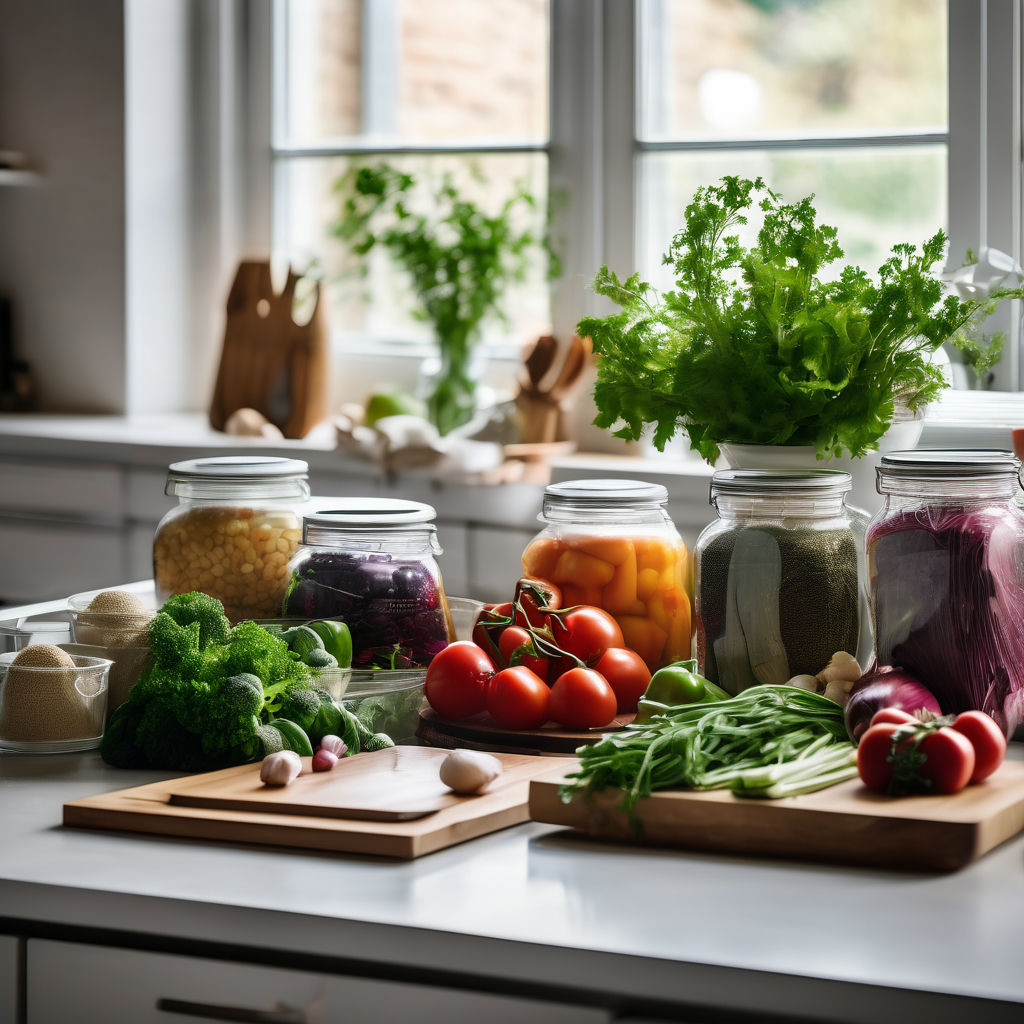
The Future of Meal Prep: How AI is Making Weekly Cooking Faster and Easier
Remember when meal planning meant flipping through countless cookbooks, jotting down ingredients on the back of an envelope, and hoping you'd actually follow through? Those days are shifting fast. AI technology is quietly transforming how busy home cooks approach their kitchens, turning what used to be a time-consuming chore into something genuinely manageable.
The challenge for most busy people is simple: balancing nutrition, taste, and convenience while working a full schedule, managing a family, and dealing with whatever else life throws your way. Traditional meal planning feels like another task added to an already overflowing to-do list. That's where AI meal prep tools come in. They handle the heavy lifting—analyzing what ingredients you have, suggesting recipes that match your preferences, and building shopping lists—so you can focus on the actual cooking.
What's Changed in the Kitchen
AI-powered meal planning platforms now understand your dietary preferences, cooking skill level, and available time better than you might expect. Instead of spending an hour researching recipes and cross-referencing grocery lists, these systems do that work instantly. You tell the system what you're in the mood for, what ingredients are already in your pantry, and any dietary goals you're working toward. Within seconds, you have personalized meal suggestions that actually fit your life.
Consider the pantry management angle: you've got half an onion, some chicken breast, and three cans of beans. Rather than staring at these ingredients wondering what to make, an AI assistant can instantly suggest recipes that use exactly what you have. This cuts down on food waste while making meal decisions feel less overwhelming. Many platforms even import recipes from your favorite food blogs, social media, or YouTube channels, so you're building a collection that reflects your actual tastes.
Real Time Savings
The practical benefits are substantial. A busy parent or working professional can go from "what's for dinner?" at 5 PM to having a complete meal plan, shopping list, and prep instructions in minutes rather than hours. Some systems break down recipes into prep steps you can do in advance, helping you understand exactly how much time you'll need on cooking day. If you've got thirty minutes to cook but only found a two-hour recipe, the system will tell you upfront rather than having you discover it halfway through.
Smart shopping lists mean you're not wandering grocery store aisles or forgetting half your items. When your AI meal plan suggests recipes, the shopping list automatically organizes by store layout or dietary category. You spend less time shopping and less money on impulse purchases. The result? You actually make the meals you planned because you have exactly what you need.
Beyond Just Recipes
Modern AI meal prep tools go deeper than simple recipe databases. They track nutritional information across your entire meal plan, helping you hit specific dietary targets without obsessing over individual calories. If you're trying to eat more protein or reduce sodium, the system adjusts suggestions accordingly. This makes it genuinely possible to meet health goals while still enjoying food you actually want to eat.
The pantry feature deserves special mention because it solves a real problem: food waste. By knowing exactly what you have and suggesting recipes around those ingredients, you're using food before it spoils. Over a year, that adds up to both money saved and less environmental impact from wasted food.
Getting Started
If you're curious about trying AI meal prep technology, start simple. Pick a platform that lets you manually enter what's in your pantry or import recipes from sources you already use. Spend a week seeing how it organizes your meal planning and shopping. Most people find that even basic features—personalized recipe suggestions and integrated shopping lists—save them significant time.
The technology works best when you're honest about your preferences and constraints. If you don't actually enjoy cooking, the system can suggest simpler recipes or meal prep options. If you have dietary restrictions, those get built into every recommendation. The AI learns from what you actually make versus what you skip over, getting smarter about your preferences the more you use it.
For busy home cooks, AI meal prep represents a genuine shift from exhausting planning sessions to streamlined cooking weeks. You're not outsourcing your cooking—you're outsourcing the decision-making and administrative work that surrounds it. That leaves more energy for the parts of cooking that actually matter: the creativity, the satisfaction, and the simple joy of feeding yourself well.